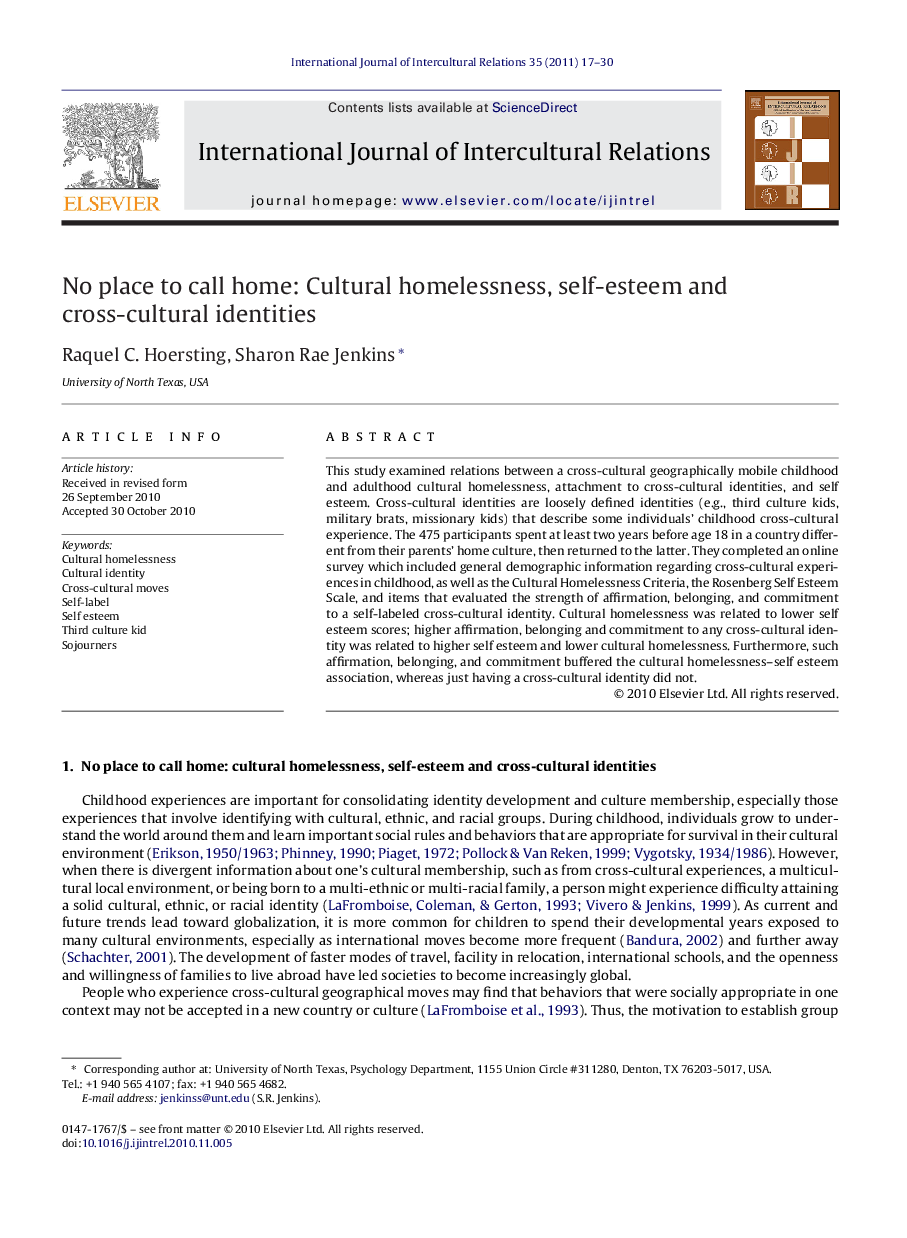| Article ID | Journal | Published Year | Pages | File Type |
|---|---|---|---|---|
| 947491 | International Journal of Intercultural Relations | 2011 | 14 Pages |
This study examined relations between a cross-cultural geographically mobile childhood and adulthood cultural homelessness, attachment to cross-cultural identities, and self esteem. Cross-cultural identities are loosely defined identities (e.g., third culture kids, military brats, missionary kids) that describe some individuals’ childhood cross-cultural experience. The 475 participants spent at least two years before age 18 in a country different from their parents’ home culture, then returned to the latter. They completed an online survey which included general demographic information regarding cross-cultural experiences in childhood, as well as the Cultural Homelessness Criteria, the Rosenberg Self Esteem Scale, and items that evaluated the strength of affirmation, belonging, and commitment to a self-labeled cross-cultural identity. Cultural homelessness was related to lower self esteem scores; higher affirmation, belonging and commitment to any cross-cultural identity was related to higher self esteem and lower cultural homelessness. Furthermore, such affirmation, belonging, and commitment buffered the cultural homelessness–self esteem association, whereas just having a cross-cultural identity did not.
Research highlights▶ Do cross-cultural geomobile childhoods create risk for cultural homelessness (CH)? ▶ Cross-cultural identities (CCIs) e.g. Third Culture Kids (TCKs), Global Nomads help? ▶ CH was related to lower self esteem among 475 adult childhood (before 18) sojourners. ▶ Self-rated attachment to a CCI was related to lower CH and higher self esteem. ▶ CCI Attachment buffered the CH-self esteem relation; just having a CCI did not.
